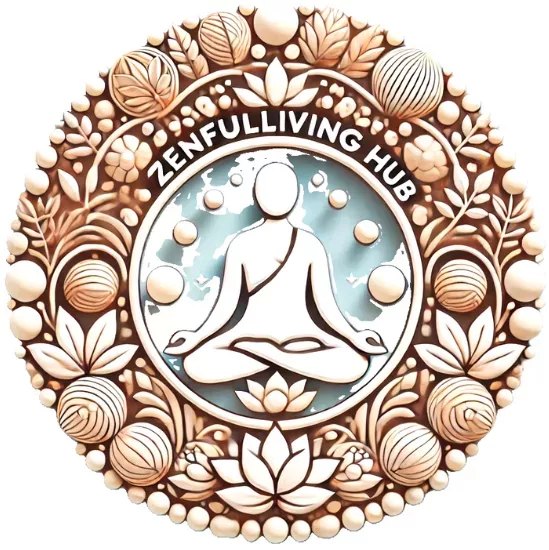
What is Intuition, Anyway?
Some folks call it a gut feeling; others refer to it as an inner voice or hunch. At its core, intuition is the ability to understand something immediately without the need for conscious reasoning. It’s like being hit with a realization out of nowhere, often steering you one way or another.
Historically, intuition has been both celebrated and doubted. Ancient cultures sometimes viewed it as a divine gift, while skeptics dismissed it as coincidence or guesswork. Despite its elusive nature, intuition has played a significant role in art, science, and decision-making. Examples like Einstein’s “Eureka!” moments or Van Gogh’s creative insights—were both deeply intuitive experiences.
The Neuroscience of Intuition: What Happens Inside the Brain?
While intuition might feel mystical, there’s plenty of science behind it. Key players in intuitive processing include the amygdala and the prefrontal cortex.
Amygdala: This part of the brain governs emotional reactions, quickly assessing threats or rewards. It’s what helps you make snap judgments.
Prefrontal Cortex: This area works in tandem with the amygdala, analyzing past experiences and recognizing patterns. Essentially, it’s your brain’s detective.
Neurotransmitters like dopamine also play a role. Known as the “feel-good” chemical, dopamine rewards intuitive decisions, reinforcing the behavior. For example, if your gut feeling to trust a person proves correct, dopamine strengthens the memory, making it easier to trust similar feelings in the future.
Practical Tools to Develop Intuition
Developing intuition is like training a muscle. Here are some actionable steps to help:
1. Mindfulness Practices
Meditation: Spend 5-10 minutes daily in silent or guided meditation. Focus on your breath or use prompts like, “What does my intuition tell me about [specific situation]?” (What is Mindfulness: A Beginner’s Guide)
Body Scanning: During meditation, scan your body for sensations. Physical cues often provide intuitive insights, such as tension when something feels wrong. (The Mind-Body Connection)
2. Journaling
Reflect on moments when you’ve trusted or ignored your gut feelings. What happened? Journaling helps identify patterns and recognize how intuition manifests in your life.
3. Expose Yourself to New Experiences
The more varied your experiences, the richer your mental database for intuitive decision-making. Try learning a new skill, traveling, or engaging in unfamiliar situations.
4. Play Intuition Games
Practice low-stakes exercises like guessing who’s calling before checking your phone or predicting the next song on shuffle. These playful activities sharpen your instinctual thinking.
5. Active Listening
Pay attention to your inner dialogue. When faced with a choice, ask yourself questions like, “What feels right?” or “What’s my first instinct?”
Intuition and Evolution: An Adaptive Advantage
From an evolutionary psychology standpoint, intuition isn’t just a mystical phenomenon but a survival tool. Early humans relied on it to make quick decisions—choosing safe shelters, detecting predators, or finding food sources. These snap judgments, shaped by generations of trial and error, became hardwired into our brains.
Animals also display intuitive behaviors. For instance, migrating birds navigate thousands of miles instinctively, while dogs often sense danger before it’s visible. For humans, intuition blends this primal instinct with learned knowledge, offering a unique advantage in problem-solving and decision-making.
When to Trust Your Gut: Recognizing True Intuition
Intuition can be incredibly accurate, especially in familiar situations where you’ve accumulated relevant experience. However, people often confuse true intuition with overthinking or emotional biases. This confusion can lead to decisions driven by an overprocessed mind rather than genuine gut feelings.
Professional Expertise: A seasoned firefighter can intuitively assess the safest route in a burning building.
Personal Relationships: You might sense when someone isn’t being truthful without concrete evidence.
To recognize true intuition, it’s important to:
Pause and Tune In: When faced with a decision, quiet your mind and focus on the first instinct that arises.
Identify Emotional Overload: Strong emotions can cloud intuition. Ensure your feelings aren’t overshadowing your gut.
Trust the First Thought: Intuition often manifests as the very first thought or impression you have before logic or doubt creeps in. It’s the subtle voice that speaks softly compared to the louder noise of overthinking. For instance, if you immediately feel uneasy about an opportunity, that subtle discomfort might be your intuition cautioning you. Similarly, feeling an instant connection when meeting someone new often points to intuitive recognition of compatibility or trustworthiness.
Intuition in Daily Life: Real-World Applications
Career Choices
Whether deciding to switch jobs or accept a promotion, intuition often guides us. To use it effectively, list the pros and cons logically but give weight to what feels right.
Parenting
Intuition plays a huge role in caregiving, from recognizing when your child needs emotional support to sensing potential dangers.
Creative Projects
Artists, writers, and musicians frequently tap into intuition. Consider brainstorming sessions where ideas flow naturally without overthinking.
Conflict Resolution
When navigating disagreements, intuition helps assess others’ emotions, guiding you toward empathetic responses.
Enhancing Intuition Through Mindfulness
Mindfulness heightens self-awareness, making it easier to recognize intuitive cues. Here’s how to incorporate mindfulness into your daily routine:
Morning Check-In: Begin your day by asking, “What feels most important for me today?” (Enhancing Self-Belief)
Mindful Walks: Spend time outdoors without distractions. Pay attention to sounds, sights, and feelings—a practice that tunes you into subtle inner signals.
Gratitude Practices: Reflect on moments when intuition led to positive outcomes. Gratitude reinforces these experiences. (Boosting Self-Acceptance)
Mastering Intuition: For deeper insights into how mindfulness enhances your inner compass, explore this article.
Science-Backed Benefits of Intuition
Research underscores the value of intuition in decision-making. Studies reveal:
- Faster Decisions: Experienced professionals make quicker, more accurate choices using intuition.
- Emotional Resilience: Trusting your gut can reduce second-guessing, boosting confidence.
- Enhanced Creativity: Intuitive thinking helps connect seemingly unrelated ideas, sparking innovation.
Tools to Boost Intuition
Visualization Exercises
Before making a big decision, close your eyes and visualize each possible outcome. Pay attention to how your body reacts to each scenario.
Dream Journaling
Dreams often reflect subconscious thoughts. Keep a notebook by your bed to jot down dreams, which might offer intuitive insights.
Guided Meditation Apps
Apps like Calm or Insight Timer offer meditations designed to enhance self-awareness and intuition.
Mind Mapping
Create visual representations of problems or goals. This method taps into intuitive thinking by encouraging free-form idea exploration.
Common Myths About Intuition
“Intuition Is Irrational”
While intuition bypasses conscious reasoning, it’s grounded in pattern recognition and experience.
“Only Some People Are Intuitive”
Everyone possesses intuition; it’s a skill that improves with practice and awareness.
“Intuition Always Leads to the Right Answer”
Intuition is highly accurate but can be misinterpreted if confused with overthinking or emotional bias.
Final Thoughts: Cultivating Trust in Your Intuition
Developing intuition is a lifelong journey. By combining mindfulness, self-reflection, and deliberate practice, you can enhance your ability to trust your gut. Whether navigating personal challenges or making professional decisions, intuition serves as a powerful ally, guiding you toward choices aligned with your deepest values.


Hi Sabrina.
Fascinating article that explores the science behind intuition! I’ve always been curious about that inner voice we sometimes hear. It’s interesting to learn that intuition isn’t just a “gut feeling” but has a neurological basis.
I especially liked the part about how mindfulness practices can help develop intuition. I’ve been trying to meditate more lately, and I’ve noticed that it’s helped me become more aware of my thoughts and feelings. I think that increased awareness can definitely help me better understand my intuition.
I also found the section on recognizing true intuition to be very helpful. It’s important to distinguish between true intuition and overthinking or emotional bias. I think I’ll try to pay more attention to my initial thoughts and feelings when making decisions.
Mitia
Hi Mitia,
I’m so glad you enjoyed the article! It’s fascinating how intuition isn’t just a “gut feeling” but has a neurological basis, right?
It’s wonderful to hear that meditation is helping you become more aware of your thoughts and feelings—mindfulness really does sharpen our ability to tune into intuition. And yes, distinguishing true intuition from overthinking or emotional bias can make such a difference. Paying attention to those first, subtle impressions is a great habit to build.
Thanks for sharing your experience! Keep listening to that inner voice—it sounds like you’re on a great path.
Warmly,
Sabrina
I’ve had several moments in my life where intuition played a key role in decision-making. One experience that stands out was when I felt an unexplainable pull to accept a job offer, even though the logical choice seemed to be a different opportunity. Trusting my gut led to personal growth and unexpected opportunities I wouldn’t have experienced otherwise. This article does a fantastic job breaking down the science behind intuition and provides actionable ways to strengthen it—something I’m definitely inspired to explore further!
Hi Herman,
Thank you so much for sharing your experience and for your kind words about the article! It’s amazing how intuition can guide us toward opportunities that logic alone might overlook. Your story is a perfect example of how trusting that inner pull can lead to personal growth and unexpected paths that align with our deeper purpose. I’m thrilled to hear that you found the article both insightful and inspiring! If you do explore some of the techniques to strengthen your intuition, I’d love to hear how they work for you.
Wishing you even more moments of clarity and growth! 😊
Sabrina